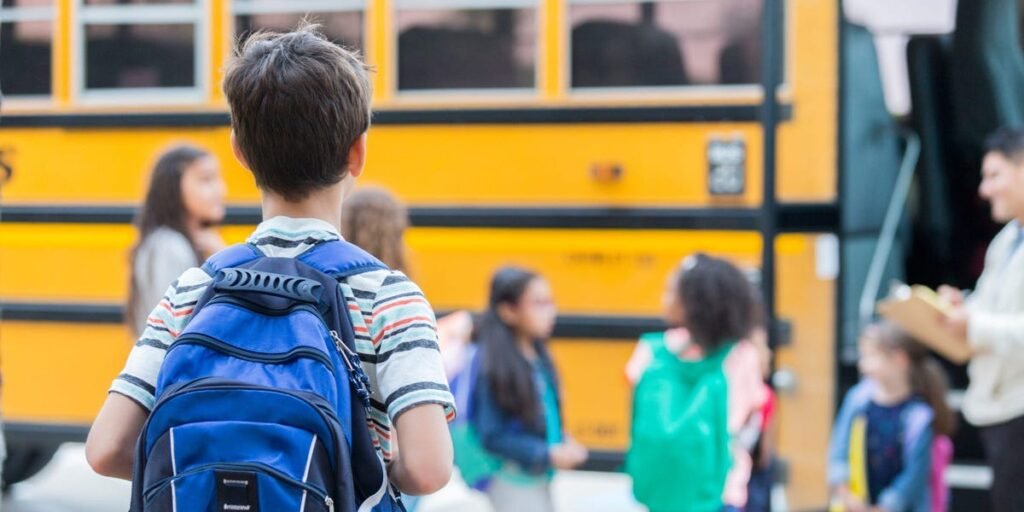My husband is about to start his 19th year of teaching, our eldest is starting 7th grade, and our youngest is starting 1st grade. In our family’s collective decades of experience, the one motto we try to embrace at the beginning of each school year is that everything is variable. Most of our parent friends try to control for all the variables — school, teachers, and sometimes even friends or classmates — and we’ve learned that it rarely works as intended.
We are not completely immune to the urge to control things. We pushed for our youngest to have the same teacher as her big sister, but ultimately, we try to remember that there are plenty of moving pieces, and that trying to control them all will only lead to more stress and disappointment.
The so-called “perfect school” might not be a perfect fit for our child, and the person everyone considers the best teacher might not be the best teacher for our kid. Classrooms change, and with them, classroom dynamics. Everything is variable, and while it is tempting to try to control our situation, we try to be open to the possibilities and help our kids navhttps://www.businessinsider.com/what-i-learned-teaching-in-public-school-for-23-years-2023-9igate them.
Focus on what you can actually control
Parenting seems to be a neverending practice in facing our ultimate lack of control as humans. As the quote from author Elizabeth Stone goes, “Making the decision to have a child — it is momentous. It is to decide forever to have your heart go walking around outside your body.” It is daunting to experience this vulnerability firsthand, and with it comes an overwhelming impulse to try and bend the world to our will, at least in terms of protecting our little ones.
I try to remember this simple phrase from a friend: “Control the controllables.” I can (usually) control whether my clothes are clean, what we pack for lunch, and getting the kids to school on time. I cannot control what happens on the playground, what they actually eat, or the 16-car pileup on the freeway. That is to say, I cannot control life.
Just because it seems better on paper, that doesn’t always mean it is
Throughout his almost two-decade tenure as a math teacher, my husband has experienced the gamut of classroom situations, from ideal to almost unbearable. For five years, he taught at a new, early college high school. Highly academically achieving students would apply, as it seemed like the better option.
However, the increased course load and accelerated schedule did not always work. Even though the school was “better” on paper, it did not mean it was the better academic situation for every student. Previously thriving students would sometimes fail, not because of ineptitude on any one side but simply because the best academic environment is not a monolith.
What works for one kid might not work for the next
There are things you know, and then there are times when this knowledge is put to the test. My husband and I, who are actively hands-off when requesting teachers, broke our rule regarding our youngest starting pre-K in our public independent school district. We loved our eldest’s teacher, and both requested that her sister have the same one.
We got our wish, but everything was different for our second-born. She entered school when the pandemic was still an active factor, with peers equally disoriented from recent isolation. Despite knowing this teacher since birth, she cried every day until April of that school year. Though her teacher was amazing, still, our youngest had a completely different experience and struggled through most of her first year. We learned the hard way that, whether it’s because of the teachers themselves or the circumstances, education isn’t one-size-fits-all.
We sought out an idyllic situation and faced an unsolicited opportunity to guide ourselves and our child through rocky terrain. After all, that is what life is made of, and we want our kids to be able to embrace and enjoy the journey with all its ups and downs.
Read the full article here


